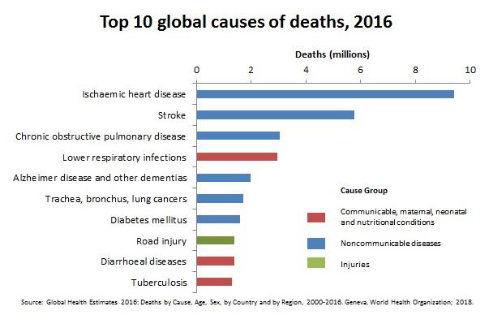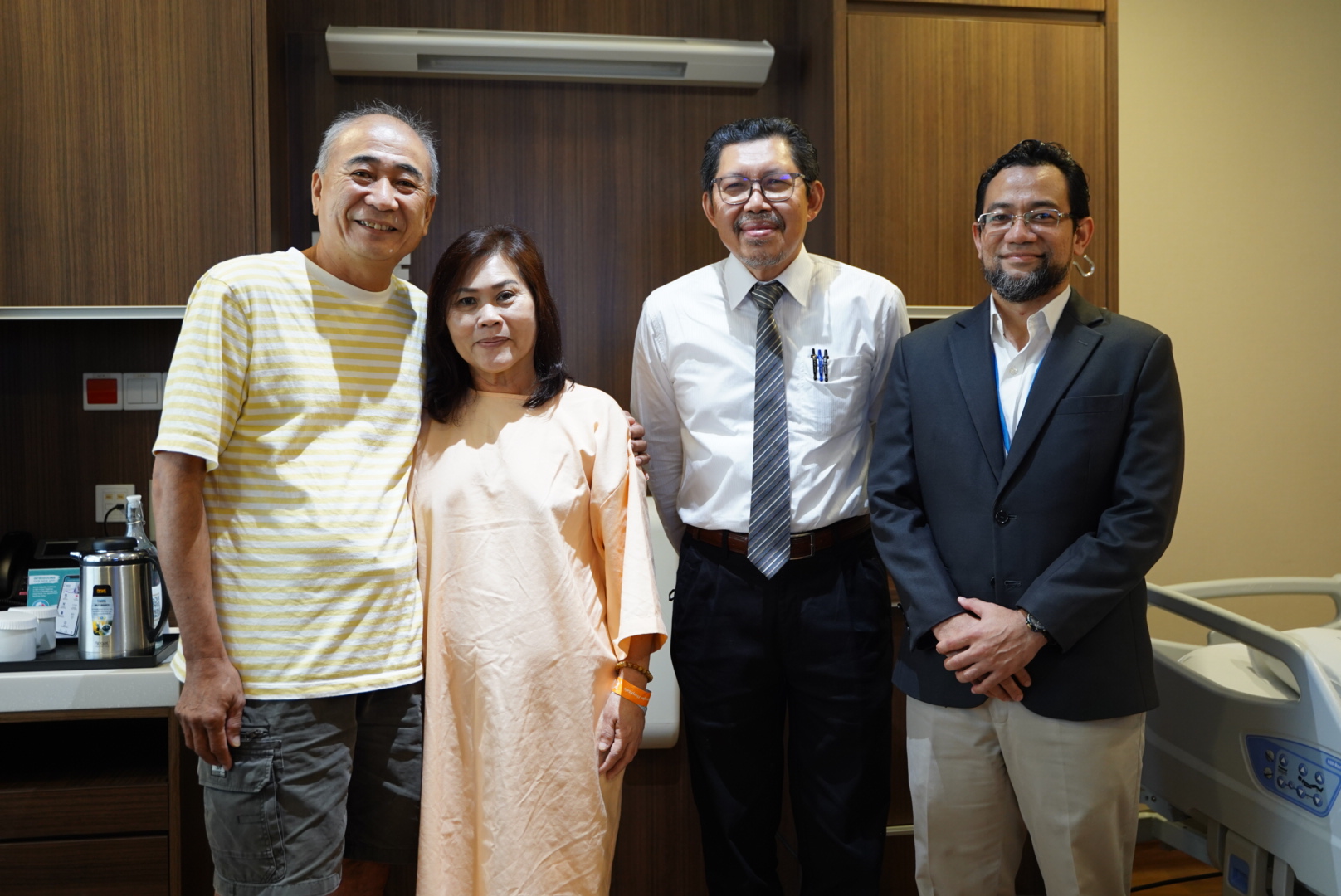Prepared by Dr Mohd Roslan bin Haron
Consultant Clinical Oncologist
Gleneagles Medini Hospital
Definition of cancer almost always will include phrases like “uncontrolled proliferation of cells in the body that can invade surrounding tissues and spread to distant structures and organs…” Whatever the definition maybe, clinically
or in the ‘laymen’s’ term, cancer has always been associated with death, misery and suffering in the minds of the newly-diagnosed.
Unlike the diagnosis of hypertension or a cardiovascular disease or diabetes (which are more common than cancer); these diseases are usually well accepted by the newly diagnosed without the fear of death, misery or suffering lingering in our minds. Little
that we know that CVS diseases is the leading cause of death and little that we realised that diabetes can be a life-long disease requiring intense treatment and self-control. Let alone the misery leading to its complication.
The Department of Statistics Malaysia in its Press Release on the Statistics on Causes of Death, Malaysia, 2018 revealed that Cancer lies 5th amongst the causes of death in Malaysia with 2.4-2.7% in the male population. Death related/due
to cardiovascular disease (mainly ischaemic heart disease) was the main cause of death at 15.3-16.0%. These findings tally with the report from WHO 2018 Global Health Estimates of 2016 stating that the number one cause of death globally is related
to cardiovascular events rather than cancer. And yet, the stigma of death, misery and suffering somehow is only and always attached to the cancer illness.

As much as we do not want to attach any other illnesses with this awful attitude, our state of mind seemed to have been set to perceive such, most often out of ignorance, lack of understanding and fear.
The success of any particular treatment of cancer depends on many variables. Apart from the clinical features of the disease (the main factor), factors like the attitude of the patient as well as the next of kin or caregiver are also important in ensuring
the success of any treatment that has been planned for the patient. It is only upon completion of the treatment successfully, can the predicted outcome of treatment be made more meaningful.
It is therefore very important that patient’s are given proper understanding of their disease and the treatment that will be given in order to eradicate if not to minimize the stigma that cancer is “death, misery and suffering”. Only
then, can treatment be given optimally and successfully, a very important key towards cancer cure.
Optimal cancer treatment is often linked to efficient clinical management of the disease. Most importantly, in an effort to achieve efficacy and efficiency of any particular treatment, a guideline of the overall treatment policy for each individual patient
should be outlined from the word go. With this approach, an individual with cancer will and should be managed by a team of multi-disciplinary cancer care providers. For example, in the Hospital setting, the Tumour Board Committee should be the centre
of the patients medical and clinical management with inputs from related healthcare providers
With the many changes and development in the arena of cancer treatment over the past few decades, there is always something that can be given as treatment to all patients. Treatment is usually given with the aim of cure for the majority of patients but
sometimes this may not be possible especially with advanced disease. In which instance, palliative treatment is usually the intent of treatment.
Whereas the holistic treatment of cancer should actually begin at home, the choices for treatment at the hospital depends on many factors like the staging of the cancer, its histological features and surely, the patients consent to treatment. There are
many different kinds of treatment that can be given including surgery, chemotherapy, radiotherapy, targeted and immune therapy and many others. In almost all cases, treatment is usually a combination of two or more of the above treatment modalities.
Treatment is usually tailored to suit each individual patient differently, depending on their cancers and is never the same for all patients.
Cancer treatment usually involves delivery of repeated treatments scheduling and can be a long and tiring journey. Treatment compliance and adherence to scheduled hospital visits are some areas of concern that can affect the completion of treatment. The
main reason to this is patient’s inability to tolerate the various side effects of treatment. Although many different methods of intervention are available to minimize those side effects, many other non-clinical factors can also help to improve
treatment compliance. This include psychosocial support and encouragement especially from the next of kin and other family members.
Another very important issue is that of financial competence. Cancer treatment is none but expensive and can be a burden for all. Provision of affordable and modern cancer treatment facilities is indeed a big challenge for both the government as well
as the private enterprise. Compulsory health care insurance is one method of trying to solve this but its implications need to be identified and addressed correctly before it can be a success.
There are many areas that still need to be addressed and many more will appear as we move on with time for betterment of cancer treatment. Remember, there is always something that can be done for all patients that have been diagnosed with cancer and it
is surely NOT the end of the world; as ‘cancer’ is just a word, not a sentence and definitely, definitely NOT a death sentence.


6fddc7d0-20f4-4624-b0a2-4e1017fc3b63.jpg?sfvrsn=404d305_6)
cdd280d3-fa9c-4039-b020-f062e04d69fe.jpg?sfvrsn=79f2453f_6)





